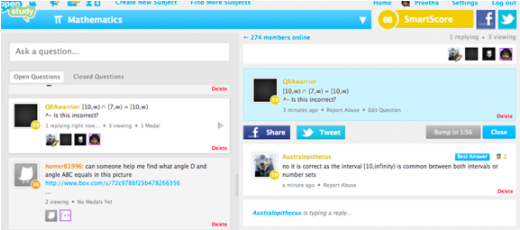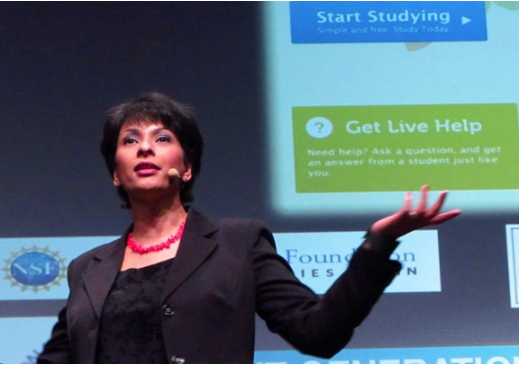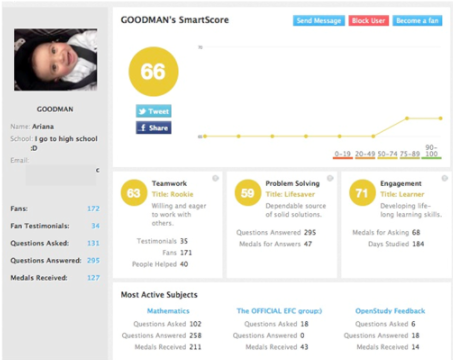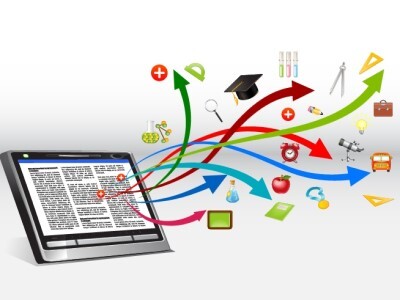How to Exceed Expectations
Topics

Educators increasingly rely on education technology tools as they shift instruction, redefine teacher roles, and design learning experiences that reflect how students actually learn. Technology should never lead the design of learning. But when used intentionally, it can personalize instruction, enrich learning environments, and help students master critical skills.
In this guest post, Preetha Ram details how the work with OpenStudy evolved over the course of their NGLC grant period. OpenStudy was among 29 grantees to receive funding as part of Wave I: Building Blocks for College Completion.
How does an idea take shape? For many of us academics, the act of writing a proposal starts the process. A vague idea takes shape and we try to mold it into the framework demanded by the RFP. We are driven by the goal of obtaining funding. The discipline required by RFPs spurs the creative process and a new project takes shape. About a year ago, the NGLC RFP spurred Ashwin Ram and me to imagine something completely different.
The NGLC grant process was different from the typical NSF and Department of Education project, and as we moved through our year as one of the 29 Wave I awardees, it turned out our project also evolved unpredictably differently. For example, we actually met our funders several times, and sometimes over the open margarita bar. And marvelously, we got to know each other, through meetings, convenings, and events. We talked, presented our ideas, shared our trials, complained about shared obstacles, and grew into a warm Community of Practice. We learned from each other, we worked with each other, and, best of all, we helped each other. These interactions created a most extraordinary and most enriching experience. And along the way, our project, OpenStudy, blossomed thanks to the rich exchanges. Half way through, we realized we had to go beyond what we had originally proposed.

In our proposal, we promised scaling of adoption and learning outcomes with our unique blended learning approach. Rather than follow traditional paths of academic intervention, top down, from the faculty to students, we said we would go straight to the students. We would develop online social learning, empower peer learning, and create an informal learning environment outside the classrooms of the world. On OpenStudy now, any learner can ask for an explanation on any concept or problem and the peer community helps—as only a peer can. The Facebook-like social exchanges drive engagement and the peer-to-peer learning results in a win-win scenario.

We then realized that there was virality in the platform. Those who came for help stayed to help. Our call to action was, “Take 10 to Teach 10.” If everyone helped ten learners and some of those helped ten others, we would reach millions—a learning help gone viral. (I talked about this at my Tedx SanJose talk).
We found that 80% of those surveyed for the NGLC project claimed they found learning on OpenStudy fun and had, in fact, improved their understanding of their courses. We achieved our goals of scale (100,000 users, >40 institutions) and learning outcomes, but during our journey with the NGLC community, through the many one-on-one conversations and the rousing speeches by the leadership team, we realized that achieving these goals was not enough of a game-changer for the learners we wanted to serve.
First, we realized that more than grades, engagement is the best predictor of success and retention in college. How many high school transcripts include a reckoning of “engagement?” Was anyone teaching our teens about this? For the ones who survived college, and graduated, they faced the dismal statistic: 53% of our college graduates are underemployed or just plain unemployed. On the other side of the table, employers admit they do not hire just because someone has a college diploma; they want to see teamwork, communication skills, problem solving skills, leadership.… So, once again, we wondered, where was that featured in the curriculum or on the transcript? Well, for students who attend a Harvard or a Yale, odds are they would participate in opportunities or projects that would teach them these skills and figure on the resume. They are now empowered to talk about all this in their job interview. But what if our learner does not belong to the tiny fraction that is privileged to attend these schools? What if they went to a community college, and worked in the day, and took care of their child at night? This was the problem—one that goes beyond Math—that spoke to us.
Learners face two challenges: (i) finding the right experience that will train them in these skills, and (ii) producing a credible documentation of these skills.
We realized that these soft skills all shared something in common: they were skills that you could only develop in a social setting, with others, in groups, etc. And on OpenStudy we had such a social setting. Watching the interactions on OpenStudy, we realized that this ecosystem was just the right environment where we could watch users demonstrating key soft skills: helpfulness, courtesy, teamwork, problem solving, and engagement, to name a few. You see, just like our NGLC Community of Practice, OpenStudy had grown into a Community of Practice. And so we created the SmartScore.

With SmartScore, OpenStudy challenges the traditional notions of intelligence normally quantified by grades. The SmartScore reports on skills and competencies demonstrated on our platform that are relevant and meaningful for both student success and workplace success. The SmartScore is a 21st century version of real world intelligence, and will include a report of a user’s teamwork, engagement, and problem solving.
Turns out, what happens on OpenStudy is very much what we experienced in the NGLC community: teamwork, problem solving, engagement, leadership—a true Community of Practice. And what we experienced with NGLC was the power of a community to inspire us to exceed expectations.
To learn more about OpenStudy or to join the community, visit:http://openstudy.com/




